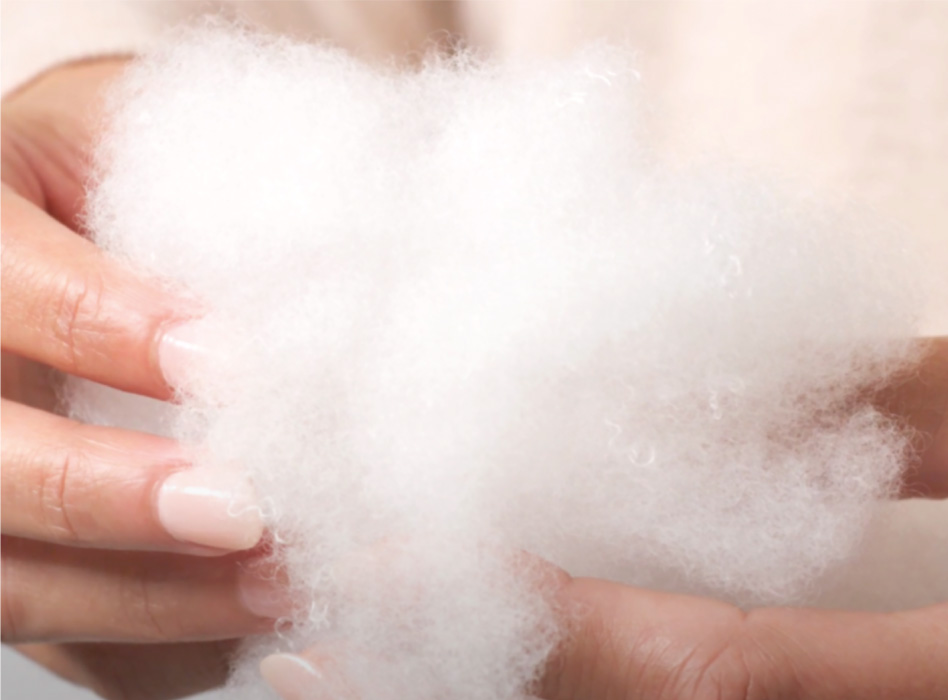Sustainability

If you look inside our fibre, there is a story to tell...
The ECO Origin™ Program represents a new beginning for our premium high-tech fibres. Made for comfort and sustainability, our superior polyester fibres are remade responsibly from recycled plastic bottles. Our clean filling fibres are produced with environmentally conscious operations for a sustainable future and provide ultimate comfort in your cozy bedding.
Our raw materials are consciously sourced from local coastal community bottle collection or Plastic Bank Social Plastic® bottles. These are processed into plastic flakes that we use to make our premium polyester fibrefill.





